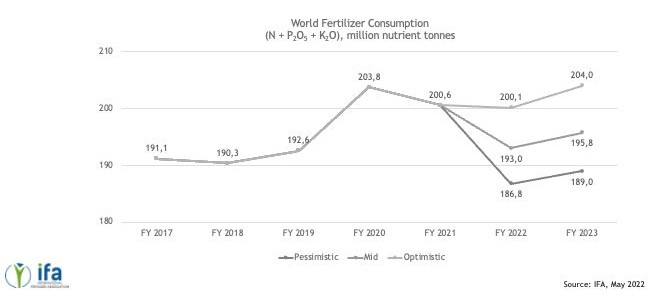Help us, help farmers, feed Zambia

We’re going with the proverb: ‘Give a man a fish and he will eat for a day. Teach a man how to fish and you feed him for a lifetime.’
By pledging to support our cause you will be directly contributing to the UN’s 2nd Sustainable Development Goal (SDG2 – Zero Hunger) which aims at ending hunger in the world by 2030 and ensuring everyone has access to safe, nutritious and consistent food produce and products.
Unfortunately, extreme hunger and malnutrition remain a huge barrier to development in many countries. There are 821 million people estimated to be chronically undernourished as of 2017. Over 90 million children under five are dangerously underweight. Undernourishment and severe food insecurity appear to be increasing in almost all regions of Africa.
Our objectives are to contribute to economic growth and poverty/hunger reduction by enhancing food, income and nutrition security in Sub-Saharan Africa.
Despite an abundance of uncultivated farmland, countries in the region spend $35 billion importing food rather than creating the conditions to grow more food locally.
Sub-Saharan Africa has a quarter of the world’s arable land but only produces 10 per cent of its agricultural output.
Economic growth from agriculture is 11 times more effective at reducing extreme poverty than any other sector.
Unfortunately the lack of supportive agricultural policies, and investment, coupled with a focus on short-term development solutions, have left large tracts of agricultural land underutilized, smallholder farmers poor and food insecurity on the rise in some places.
In Africa, there are an estimated 33 million smallholder farms, and the farmers that live on them contribute up to 70 per cent of the food supply.
With greater investment in smallholder agriculture, many countries have the potential to increase food production and reduce poverty. Zambia is one of those places.
With large expanses of arable land and an abundance of water, Zambia has all the ingredients to be the breadbasket of Africa.
But bringing farming into the 21st century and dealing with rural poverty remain massive hurdles.
Although agriculture accounts for about 20 per cent of Zambia’s GDP, agricultural productivity in the country is low by global standards and more than 60 per cent of Zambians live below the poverty line.
One of the Problems – Agricultural Inputs
Nitrogenous fertilizer is the most important plant nutrient. It’s importance and relatively high cost means that fertilizer has been estimated to account for between 50 – 70% of the cost of grain producers. Due to the high cost, small-scale farmers are unable to purchase the agricultural inputs required to grow produce, let alone to run a successful, sustainable business from it.
A bag of 50kg of Urea fertilizer currently retailing for as much as £62 or K1,200 and the wage for a general worker is £54.11 or K1,050 per month. The cost of a single bag of fertilizer is more than what a general worker would make in a month.
What does the International Fertilizer Association (IFA) have to say?
Due to the high cost, global fertilizer use likely to decline up to 7% before partial recovery, with drastic food security implications.
Why is this significant?
– This decline reflects uncertainty in market conditions and is a feature of the unfolding food crisis.
– Reduced fertilizer consumption this year raises the risk of lower crop yields in the next harvest, meaning lower food production, with more people at risk of hunger and starvation.
– With Sub-Saharan Africa expected to face the most severe shortfall, of between 18% and 23% compared to FY 2021.
If you would like more information the International Fertilizer Association (IFA) Medium-Term Fertilizer Outlook report is now online: https://www.fertilizer.org/

Our Plan? Why we need your help!
We are looking for funding to offer smallholder farmers a free and environmentally friendly alternative to conventional (granular) fertilizer in order to grow their produce, feed their families and grow their agribusinesses sustainably.
We would like to give famers in Zambia access to free Liquid Nitrogen Urea, of which the cost and environmental benefits far outweigh conventional granular fertilizer. Some of the benefits include:
– It is a complete replacement for granular urea
– 500ml is equivalent to a 50KG bag (easier and more cost effective to transport)
– 100% absorption by plants
– Highly accelerated growth
– Higher disease and pest resistance
– Near zero pollution
– Results in 6-7 days after application
This will allow them to save up-to 70% of the cost of growing their crop, increase yield, with the ultimate goal of reducing hunger in Zambia.
For every £25 raised from you, we will give a famer the chance at food security by donating a 500ml bottle (50KG equivalent) of fertilizer, we will cover the rest of the costs, to a smallholder farmer.
With our goal of £3,000 we aim to support 100 famers in Zambia.
What will you get out of it?
Firstly thank you very much for reading this far.
However much you are able to contribute we will hugely appreciate it and for contributions made at the subsided value of a bottle you will receive a Zambian hand crafted and personalized African adjustable bracelet (Buy a Bottle, Get a Bracelet) in addition to knowing you have contributed to one of the most important causes we currently face.
We will also give you regular updates, pictures and videos of farmers that receive there products.







